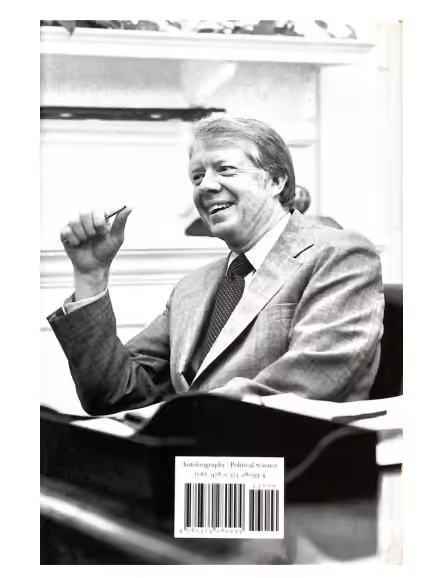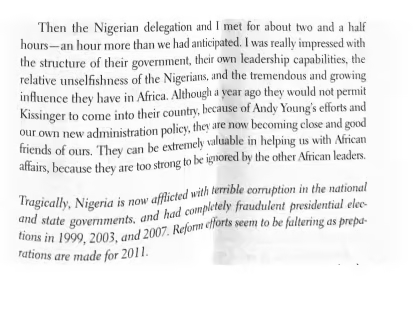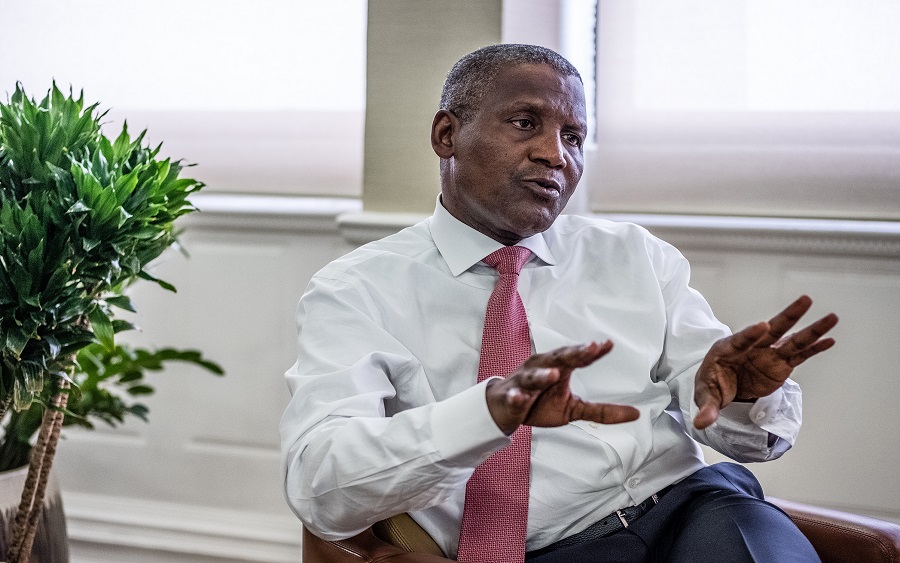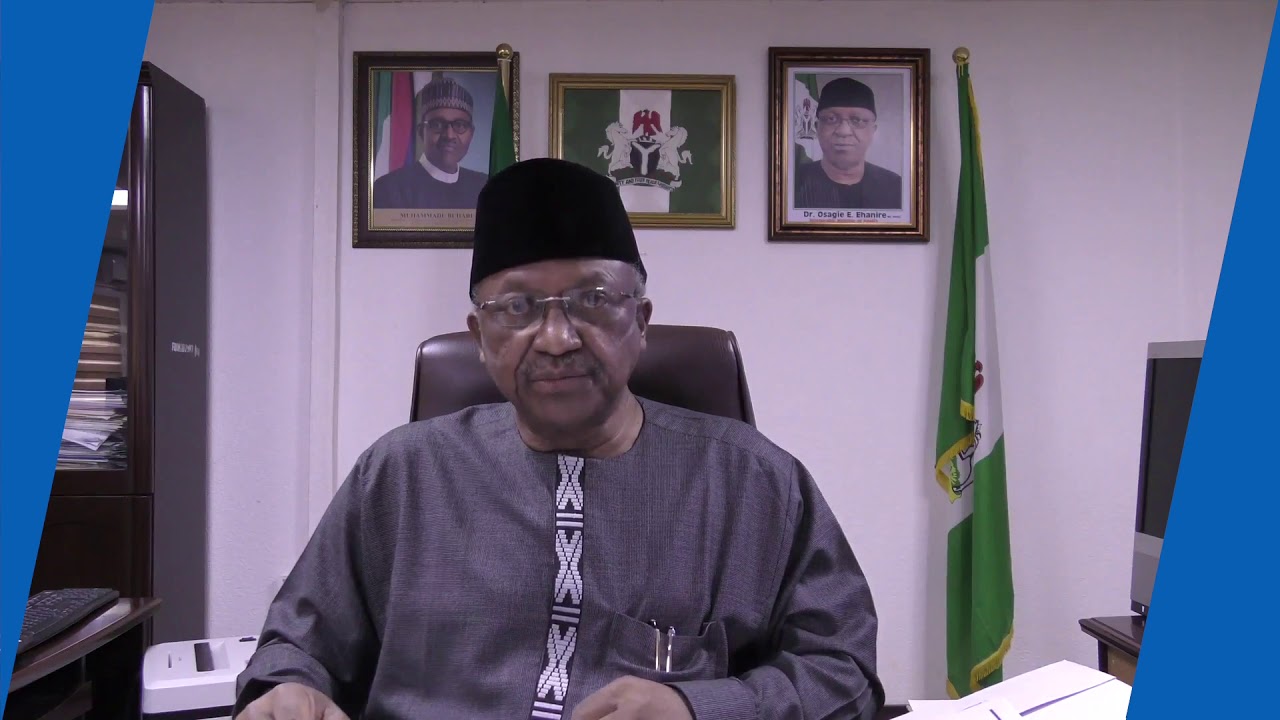Former US President Jimmy Carter’s diary about Nigeria

By Theophilus Abbah
The 39th President of the United States, from 1977 to 1981, Jimmy Carter, who passed away at the age of 100 on December 30, 2024, was passionate about Nigeria and the role the country played toward the liberation of Africa in diverse circumstances and dispensations. Variously described as a man of grace, a democrat, and an advocate of human rights, Jimmy Carter made several references to Nigeria in his White House Memoir, published in 2010. The 570-page book captured the late president’s daily encounters and activities, with measured comments on issues, government officials, and diplomats representing other countries he had engaged with on those days.
In the memoir, he made entries about Nigeria, especially, his meetings with former President Olusegun Obasanjo, who was active in the Nigerian military governments, in the 1970s, and during the country’s return to democratic rule in 1999. The first entry about Nigeria was on March 23, 1977, when the late Carter identified Nigeria as one of the countries to engage diplomatically as Americans planned a multilateral solution to the Apartheid crisis in South Africa.
The late president wrote the following lines in his diary:
“[March 23] Ambassador Botha from South Africa came by. We had a thorough discussion about how to put together a comprehensive package in southern Africa. My own though is that we might get ourselves, Great Britain, South Africa, and some of the frontline presidents – maybe [Samora] Machel (Mozambique), [Kenneth] Kaunda (Zambia), and [Olusegun] Obasanjo (Nigeria) – to agree on an overall approach to Rhodesia and Namibia, and then just ram it through and in the process get a commitment from South Africa to meet certain deadline dates for liberalizing attitudes toward blacks, moving toward ultimate full participation by black citizens of South Africa. If we don’t do something like this in a very forceful way, my belief is that this situation will deteriorate. Things that are acceptable now to the radical elements will not be acceptable a year or more hence. Fritz Mondale will take this responsibility and will do background study in the history and possibilities of southern Africa, and perhaps later I’ll ask him to go to that region to work out a final position for our country to take” (36)

Jimmy Carter’s photograph on the back page of his memoir
Carter made this entry in the early days of his administration at a time when the restrictions imposed by the Apartheid regime in South Africa against the black majority had attracted global outcry. The white minority rule was not imposed on only South Africa. Other parts of southern Africa like Rhodesia, now Zimbabwe, and Zambia, were under white minority rule; they were like colonies of South Africa. Nigeria, though located in West Africa, was at the forefront of the liberation struggle for southern Africa. In this diary, Jimmy Carter planned to engage Nigeria’s Obasanjo, who was Head of State, as the United States designed its approach to the delicate crisis. The entry demonstrated the value the US placed on Nigeria as an important country that could contribute to solving the global challenge.
The second entry about Nigeria is on Page 117, where the late president wrote about a meeting with a delegation from Nigeria. It reads thus:
[October 11], in the third paragraph: “… The Nigerian delegation and I met for about two and a half hours – an hour more than we had anticipated. I was really impressed with the structure of their government, their own leadership capabilities, the relative unselfishness of the Nigerians, and the tremendous and growing influence they have in Africa. Although a year ago they would not permit Kissinger to come into their country, because of Andy Yong’s efforts and our own new administration policy, they are now becoming close and good friends of ours. They can be extremely valuable in helping us with African affairs, because they are too strong to be ignored by the other African leaders.” (117)
The entry above attests to Nigeria’s integrity in the international community in the 1970s, though the country was under military dictatorship. Nigeria was highly regarded because of its commitment to Pan-Africanism. The country’s leadership was willing to invest its oil wealth in the liberation of Africa. Recently, a video circulated online, revealing that Nigeria spent over $60 billion in the struggle to liberate black South Africans from the obnoxious Apartheid. To spend so much on other people’s cause was a clear definition of ‘unselfishness,’ as described by Jimmy Carter. It is unclear why he was impressed by the structure of the military regime or its leadership’s capabilities. The military government was run by young generals who were barely experienced in statecraft. The previous year Carter referred to must be during the leadership of Murtala Mohammed, whose government opposed the American foreign policy posture that failed to indict the Apartheid regime in South Africa.
However, the praise-singing in the entry above was deflated by another entry in italics below it where Jimmy Carter expressed his disappointment at the corruption that tainted Nigeria’s image since 1999. He wrote: “Tragically, Nigeria is now afflicted with a terrible corruption in the national and state governments, and had completely fraudulent presidential elections in 1999, 2003, and 2007. Reform efforts seem to be faltering as preparations are made for 2011.”(117)
It will be recalled that Jimmy Carter was in Nigeria during the 1998 election that brought in Olusegun Obasanjo as civilian president.
In its report on the election, the Carter Centre stated clearly that it was good that Nigeria had embarked on democratic governance, but added that the results announced by INEC were not credible.
In a statement signed personally by Carter, on behalf of the Carter Centre, the late US president said clearly:
“[i]There was a wide disparity between the number of voters observed at the polling stations and the final results that have been reported from several states. Regrettably, therefore, we can’t make an accurate judgement about the outcome of the presidential election.”
The scathing remark about the 1999 elections came as a big blow to the integrity of the process that produced the Obasanjo Presidency in 1999, but Nigerians were to witness worse elections subsequently. That Jimmy Carter deliberately made an addendum to his positive entry about Nigeria before his memoir was published in 2010, indicated that he would not want to be seen to have endorsed a system riddled with corruption.

An excerpt from Jimmy Carter’s Memoir
The third entry about Nigeria in Carter’s memoir is on 182, about his visits to Nigeria and Brazil between March 28 and April 3, 1978. Writing about Nigeria, Carter said the first visit by an American President to the country was a breakthrough because in the three previous years, its Secretary of State Henry Kissinger was denied entry into Nigeria. At that time of tension on the continent over the activities of the Apartheid regime in southern Africa, Kessinger’s position on Angola, Rhodesia, Namibia, and the entire region was opposed to those of Nigeria whose anti-apartheid zeal was not disguised. On this visit in 1978, Carter wrote:
Again, we had a great welcome on our arrival in Lagos, Nigeria, particularly because until recently we had been the villain in the news media and in statements made by all public officials. Now there’s a genuine sense of sharing, and responsibility for peace in Africa. President Obasanjo and I went to church together. He’s a Baptist, he read the scripture, and I gave a prayer and read the responsive reading. The religious affiliations on this trip were quite significant. If the Christians can get together, particularly with an enlightened pope, the enhancement of human rights throughout the world would be very profound (182).
From Lagos, Nigeria, Carter flew to Liberia. Below the entry, he remarked in italics: “This was the first visit by an American president to sub-Saharan Africa.” For Nigeria, Carter’s visit was a diplomatic breakthrough, as it marked the beginning of a relationship that continued even after Carter left the presidency of America in 1981. Apart from the activities of the Carter Centre that supported elections in Nigeria, his centre was involved in tackling tropical diseases in Nigeria.

President Bola Ahmed Tinubu
The last two entries about Nigeria in the late Carter’s memoir were related to the perceived influence of Nigeria as a regional power, and the steps taken by the Carter presidency to consult with Nigerian leaders on global issues. On page 283, Carter recorded his interactions with the then-Chinese leader Deng on January 29, 1979. Having had a fruitful discussion with Deng, and the clear indication that his government would work with the Chinese for their mutual benefit, Carter then came up with a list of countries the United States needed to cultivate to boost the US’s status in the world. Under Item C of this strategy, Carter wrote:
[there is apparent] power shifting from a few nations like ourselves and the Soviets to be shared among many nations, with regional leaders emerging like Mexico, Venezuela, Brazil, Nigeria, India, Indonesia, and China. (d) our future American security was tied to good relations with these developing nations…(283).
Of these countries, considered vital regional powers, only Nigeria and Venezuela have failed to live up to that expectation. The other five countries have become advanced in economy and technology. They have become forces to reckon with in the contemporary global political and economic struggles.
That same year, on December 29, Carter named Nigeria as one country to be consulted by the US, if the proposed UN sanction on Iran must succeed. He wrote:
We have a problem with Iran sanction vote in the UN, and I agreed to call some of the countries involved [with good results in Nigeria, Zambia, and Jamaica]. The Iranians have agreed to see Waldheim (383)
The entry coincided with the period of strained relations between the US and Iran. After the 1979 Iranian Revolution, some Americans were taken as hostages in Tehran. At the time, Australian Kurt Waldheim was the UN Secretary-General and was engaged in the negotiation with the Iranians to see to the release of the hostages, but the Iranians refused to negotiate with Waldheim. Carter had to solicit the intervention of countries that would vote in support of the US-sponsored sanction on Iran; he considered Nigeria as one of them.
The memoirs of the late Carter on Nigeria provide an insight into how the country has fallen
The memoirs of the late Carter on Nigeria provide an insight into how the country has fallen from being a highly respected nation at the global level, to the level it is at the moment, being despised by countries like Niger, Mali, and Burkina Faso, who should regard Nigeria as a benefactor.
[i] The statement is found in Appendix M of a 76-page report, entitled “Observing the 1998-1999 Nigerian Elections,” by the Carter Center.
The Insight Report
Nigeria Coverage



